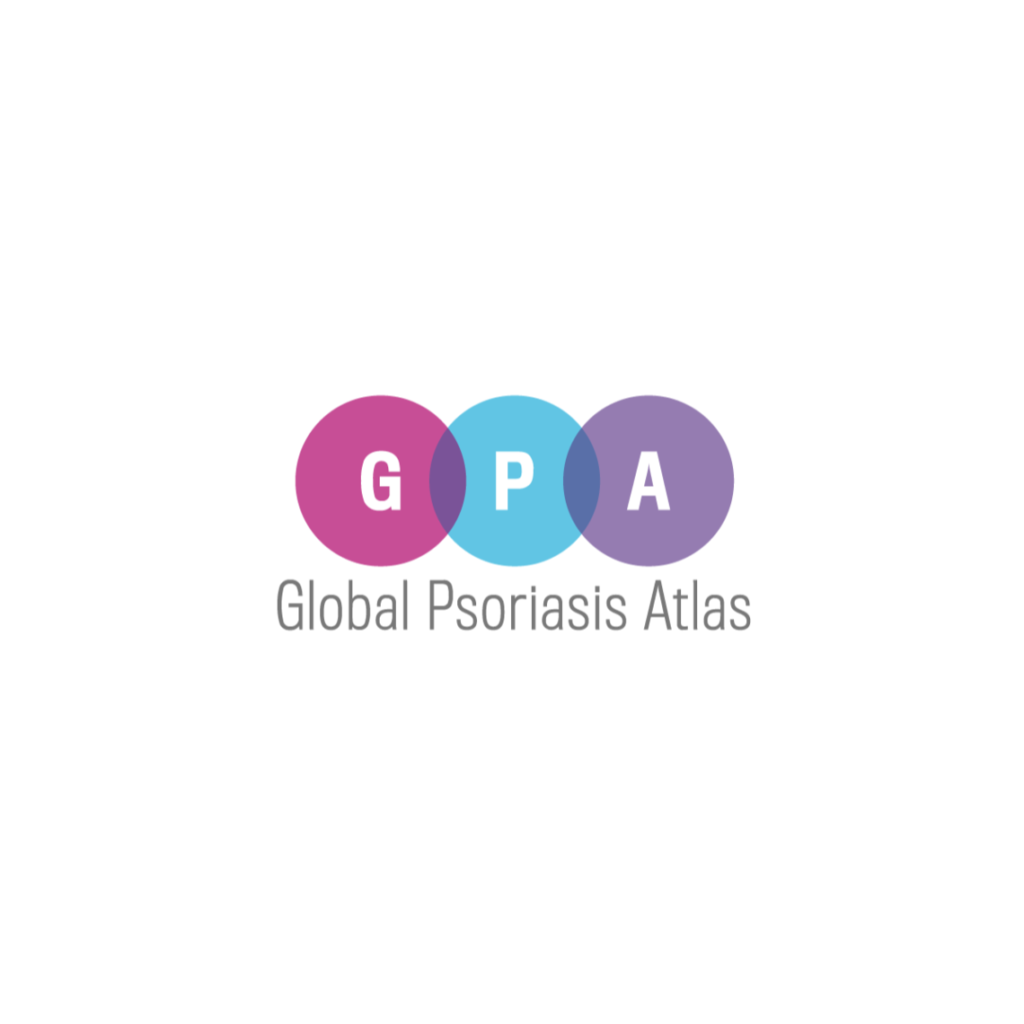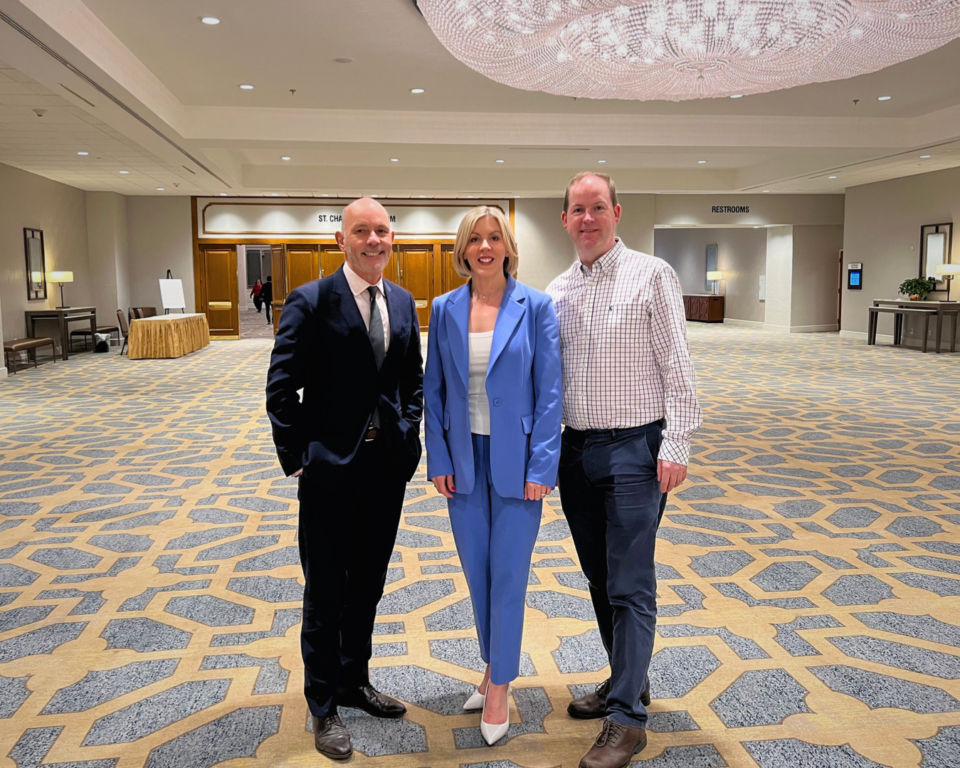Photo: The Global Psoriasis Atlas management team (from left): Chris Griffiths (GPA Director), Rebekah Swan (GPA Programme Manager), and Darren Ashcroft (GPA Research Director)
22 March 2023
Collecting and sharing data to understand the epidemiology of psoriasis
The LEO Foundation grants EUR 1.5 million to the Global Psoriasis Atlas (GPA) for phase lll of their work. GPA is one of the world’s leading resources when it comes to the epidemiology of psoriasis. The organization, which is based at Manchester University, openly shares data and research-based knowledge regarding psoriasis on its website.
The phase III grant for the GPA will be used to address key gaps in the existing knowledge about psoriasis. One of the ways in which this will be achieved is by collecting and reviewing data from existing studies and sharing the results with the GPA community. Furthermore, new epidemiological studies to examine the clustering of diseases associated with psoriasis will be carried out, as well as studies into the healthcare costs associated with the disease. A data collection tool, together with a diagnostic training tool, will also be developed further and tested. Finally, the third edition of the online GPA will be published, with more resources being available in several new languages.
Professor Chris Griffiths from Manchester University, who is the Director of the GPA, sees the phase III grant as important for the future success of the Atlas:
‘’I am really delighted that the LEO Foundation continues to fund the GPA in phase III. The LEO Foundation’s funding of the GPA has been instrumental to the success of the Atlas. Phase III funding will allow us to collect the data on the global burden of psoriasis and in turn lead to better access to care for people with the disease wherever they live in the world,’’ states Professor Griffiths.
Led by Professor Griffiths, the GPA organization is run by an international research team who shares a wide range of skills, knowledge, and many years of experience in dermatology, epidemiology, nursing, and project administration.
GPA phase III grant part of LEO Foundation strategy
According to Chief Scientific Officer in the LEO Foundation, Anne Marie Engel, the phase III grant plays an important role in the Foundation’s strategy to enable excellent research into skin and skin diseases:
“The GPA is a significant contributor in terms of accessible research data on psoriasis. It is impressive to see how the GPA has developed into a leading international data and knowledge resource over the years. The Foundation is proud be able to support the GPA with a phase III grant, allowing even more research to feed into this initiative by making knowledge and data widely accessible, which may ultimately lead to new insights to help improve the lives of people living with the disease,” says Anne Marie Engel.
As one of the world’s largest private funders of independent research into skin and skin diseases, the LEO Foundation plans to increase its level of funding and gradually introduce new grant instruments as part of its grant strategy towards 2025. The GPA phase III grant is an example of the strategy-based standalone grants from the Foundation, given to build, develop or strengthen excellent dermatology research.
The Global Psoriasis Atlas
The GPA is a long-term project that seeks to become the ‘go-to’ evidence-based resource within the understanding of psoriasis and its effects on people and society all over the world.
The first edition of the GPA was published in 2019 and provides detailed, open access information on the worldwide epidemiology of psoriasis. The GPA has a network of specialist dermatologists and international organizations around the world who work together to regularly update the GPA with new data.
The GPA is a collaboration between three leading international organizations in world dermatology: IFPA International League of Dermatological Societies (ILDS); and International Psoriasis Council (IPC) and The University of Manchester as the lead academic institution. The collaborating organizations are the joint project owners of the GPA.
About LEO Foundation funding for the GPA

Throughout its development, the LEO Foundation has been the lead funder of the GPA. The phase III grant of EUR 1.5 million will support further development of the Global Psoriasis Atlas (GPA) in the period 2023-26 and is a continuation of LEO Foundation grants for phase II (2020-23) and the initial grant to support the first edition of the Atlas (2017-20).
GPA first edition (2017-2020)
With a mission to ‘ensure that people with psoriasis, wherever they live in the world, have access to the best available care. The grant for the first version of the GPA was granted to Professor Griffiths and The University of Manchester in 2016.
The LEO Foundation has been main funder of the development of the first edition of the GPA through a three-year grant of EUR 850,000 from 2017–2020. In its first three years, the GPA project focused on research into the global prevalence and incidence of psoriasis.
GPA phase II (2020-2023)
The GPA phase II received a grant of EUR 1 million from the LEO Foundation and focused on continued research to establish robust data to address existing knowledge gaps within psoriasis on epidemiology, improving diagnosis, comorbid disease and economic impact.
About psoriasis
Psoriasis is a life-long and currently incurable immune-mediated skin disease affecting more than 60 million people worldwide. In addition to its cutaneous, stigmatizing manifestations, the disease is associated with other major medical conditions including depression, cardiovascular disease, diabetes, arthritis and cancer and can be construed as life-ruining. As such it represents a significant public health challenge. Despite remarkable advances in treatment options in some parts of the world, psoriasis continues to affect the quality of life of patients and impact health economics negatively.
